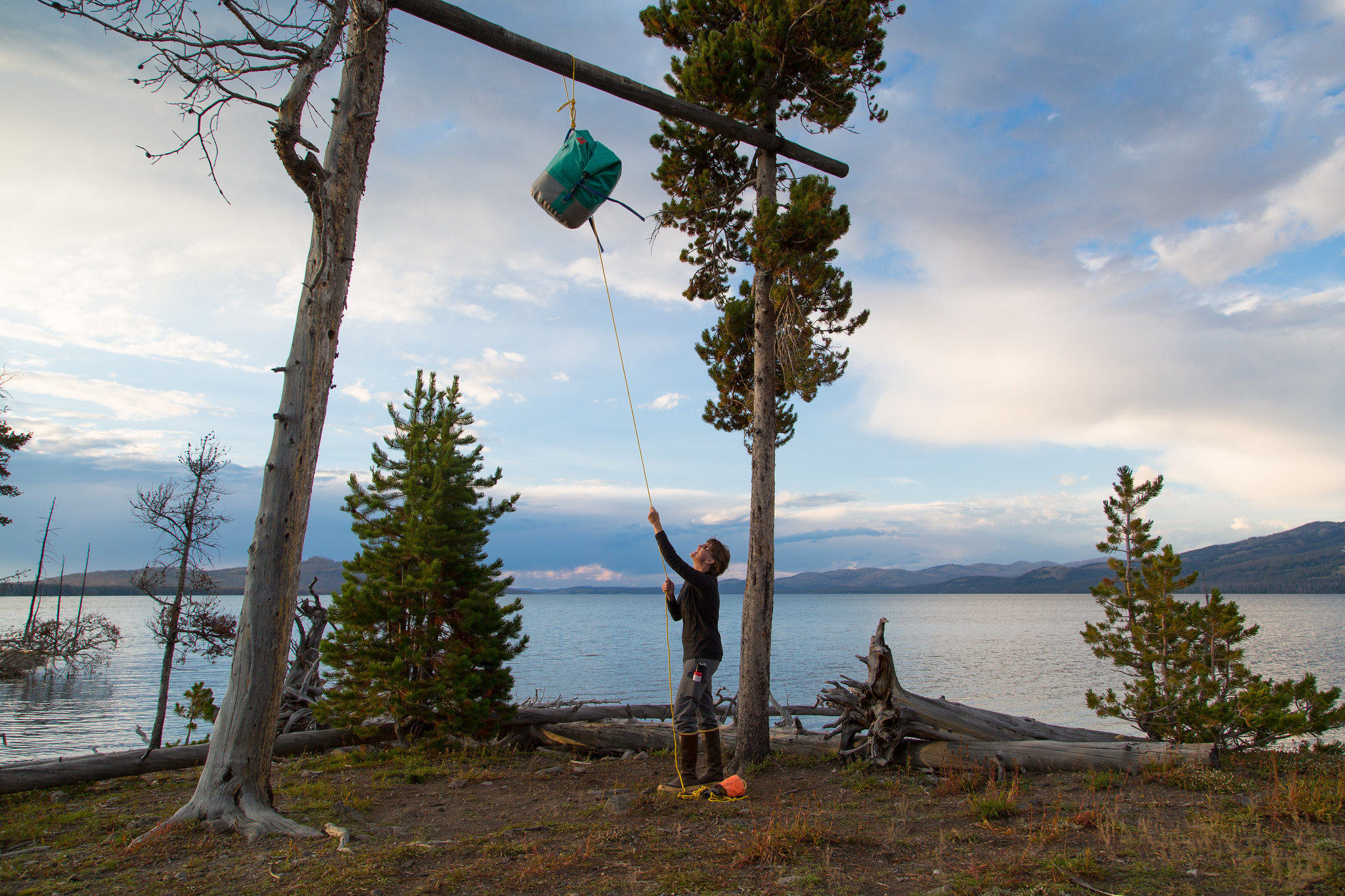A black bear at Yellowstone National Park was killed by park staff last week after a series of incidents indicating that it had learned to associate the presence of people with food, something that the park says puts “both people and wildlife at risk.”
According to a statement from Yellowstone, the first incident occurred back in early June, when an adult female black bear crushed an unoccupied tent at a campsite in the north of the park. Then, on July 11, the same bear returned to the site – and this time, successfully climbed up a food storage pole.
Food storage poles are one of many features put in place within the park to reduce the chance that bears can gain access to human food. It’s recommended that campers bring with them a rope at least 10.7 meters (35 feet) long with which to hang up their food at a height generally considered to be out of a bear’s reach.

A typical food storage pole at Yellowstone National Park.
Image credit: NPS/Neal Herbert
However, despite proper food storage by the campers at the site, the bear in this case still managed to get to the bags, tear them open, and eat the food within.
“We go to great lengths to protect bears and prevent them from gaining access to human food in all areas of the park,” said Kerry Gunther, Yellowstone bear management biologist, in the statement. “But occasionally, a bear outsmarts us or overcomes our defenses.”
When that happens, bears can learn to associate people or places where people might be – like campsites – with a reward, in this case food. This is known as food conditioning, and leads them to keep seeking out these places in order to keep getting rewarded. In turn, this might cause bears to act dangerously around humans.
“When that happens, we sometimes have to make the difficult decision to remove the bear from the population to protect people and property.”
The bear was killed by park staff in the evening of July 11, and marks the first lethal removal of a black bear at Yellowstone since 2020, which occurred after another adult female bear bit a backpacker on the arm and head and then proceeded to eat human food present at the campsite where the incident occurred.
In a social media post about the latest incident, Yellowstone staff also answered questions as to why the bear was killed rather than relocated.
“The short answer is: it doesn’t work,” they explained. “Bears exhibit strong fidelity to their established home ranges, where they are familiar with seasonal food availability and their position within the local social hierarchy.”
“In Yellowstone, relocating bears is not an effective long-term solution, as it is not possible to move them far enough to prevent return to the original conflict site or to ensure they won’t encounter similar conflict opportunities in the relocation area.”
If you want to know more about how to stay safe in bear country, check out our handy guide on how to be bear aware.
Source Link: Yellowstone National Park Kills First Black Bear In 5 Years After It Becomes “Food-Conditioned”